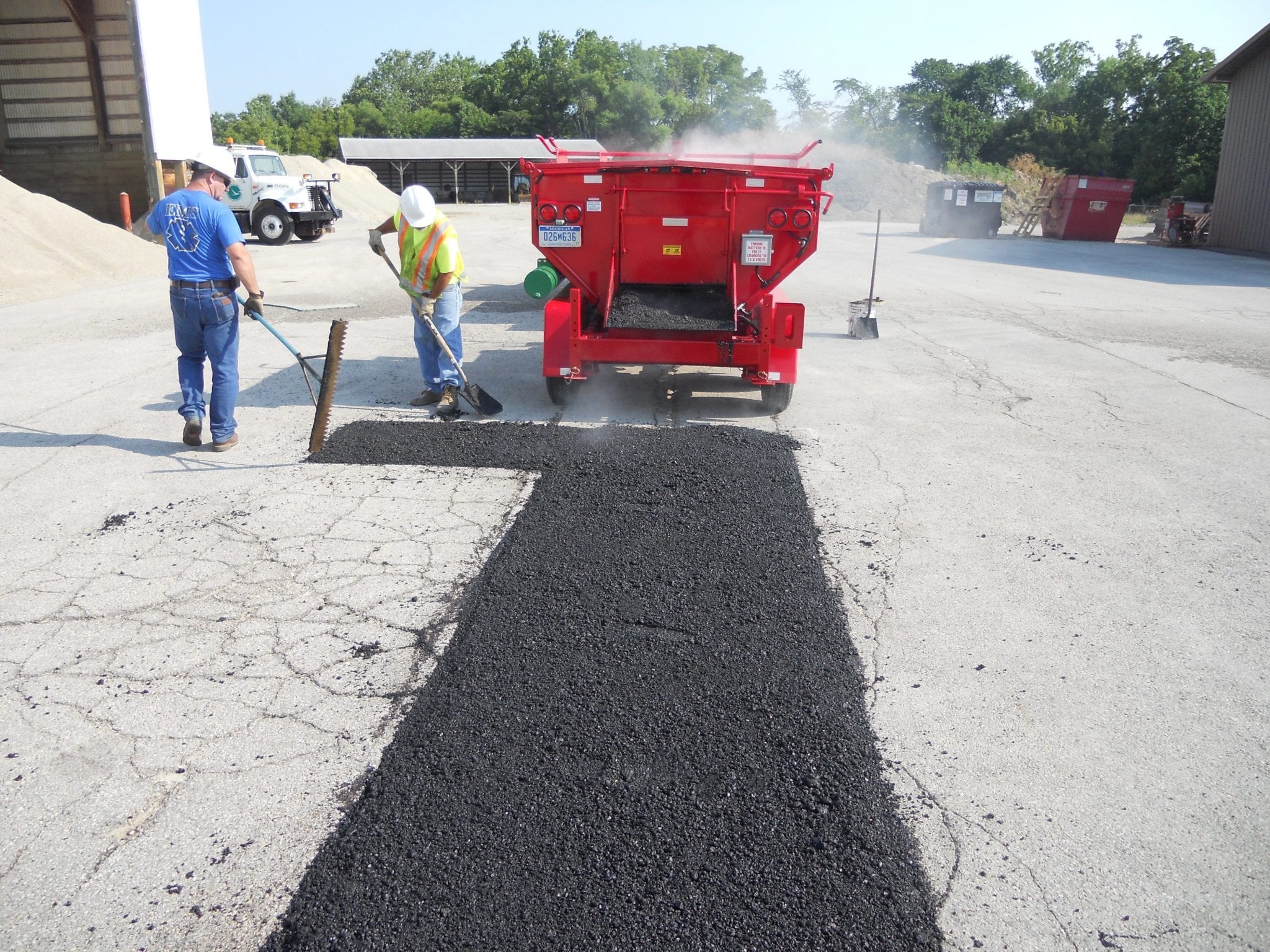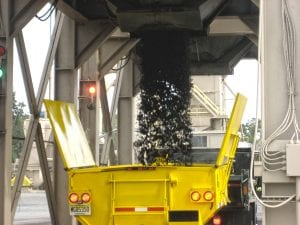Asphalt Hot Box Burner Maintenance

Performing a yearly burner tune-up is imperative to keeping your hot box out on the road and not sitting in the shop waiting for repairs. A proper tune-up can be performed in about one hour for a single burner machine and around two hours for a dual burner.
Common Signs You Need to Maintain Your Burner
There are several common (non-fire) signs that your burners require maintenance:
- Dirty or melted cad cells
- Loud and noisy fan
- Uneven heat inside of the box
- Exhausting black smoke
- Premature burner component failure
- Melted-down couplers that connect your fan and fuel pump
- Material seeming longer to heat up

Performing regular maintenance on your burners and road maintenance equipment will limit downtime, and you won’t spend as much money on replacement parts. It will also prevent burner meltdown as some of the internal components are plastic and will break down over time if not properly maintained.
You’ll ultimately gain peace of mind knowing that your burners won’t go out when you least expect them.
Recommended Burner Maintenance Schedule
If you have a single burner machine that is used for strictly hauling cold mix/hot mix asphalt, you should be performing a tune-up once every twelve months.
Alternatively, if you use a dual burner machine to reclaim asphalt, you should perform a tune-up every six months. Dual-burner machines usually have much longer burner run times than single burners and experience more and faster wear and tear.
How to Get Started
There are two ways to get started. If you prefer someone else to perform the maintenance, contact your local Falcon dealer to see if they offer a maintenance service. If not, call us for other maintenance possibilities.
We also offer a tune-up kit that includes everything you need to perform DIY maintenance. In addition to the necessary replacement parts, the kit includes a very detailed and thorough step-by-step guide that will walk you through the process.
DIY Tune-Up Kit
Using the tune-up kit to perform your own burner maintenance will save you time and money. The Falcon Tune-Up Kit includes:
- Fuel nozzle
- Cad cell
- Coupler
- Fuel filter
- F3 retention ring
- Flange gasket
- Step-by-step guide (with detailed pictures)
You will need to supply your own tools (not included in the kit):
- Philips and flathead screwdriver
- Ratchet
- 9/16 socket
- 3/8 socket
- 5/16 socket
- 7/16, 5/8, & 3/4 open-end wrench
- Needle nose pliers
- Regular pliers
- Metal paint scraper
- Dead blow mallet
- Flashlight
Customer Testimonials: Before & After Burner Maintenance
We recently surveyed two Falcon customers and asked their opinions on the importance of performing annual burner maintenance.
Q: What symptoms did your Falcon unit exhibit before you performed the tune-up and what immediate improvements did you see after you completed the maintenance?
A: “Our patcher was experiencing hard starting. It would often shut off and not restart on the road while in use. When it was operating it would smoke more than normal like the diesel was unburnt or it was operating rich. The obvious difference immediately following the tune-up was the initial startup. It fired up on the first try and when lit it was a much quieter and calmer/smoother ignition.”
– Chris Perry, Fleet Manager, Ionia County Road Department
Q: As an organization that currently performs yearly tune-ups, have you had any issues with the burner lighting and staying lit?
A: “Lessons learned to ensure reliability is annual tune up of the burner and regular testing of the battery. Proper battery voltage is an important factor in proper burner performance. We have never experienced a problem with the burning lighting or staying lit.”
Q: Has your hot patcher been down or awaiting parts to get back up and operational?
“We had a broken spring shackle on the older Falcon unit where parts were purchased from a local trailer supplier. Other than annual scheduled burner tune-up kits that we purchase from Falcon, there have been no mechanical issues where parts were needed. There has been no down time with either Falcon unit.”
– Daniel C. Brisson, Public Works, Director City of Fenton
